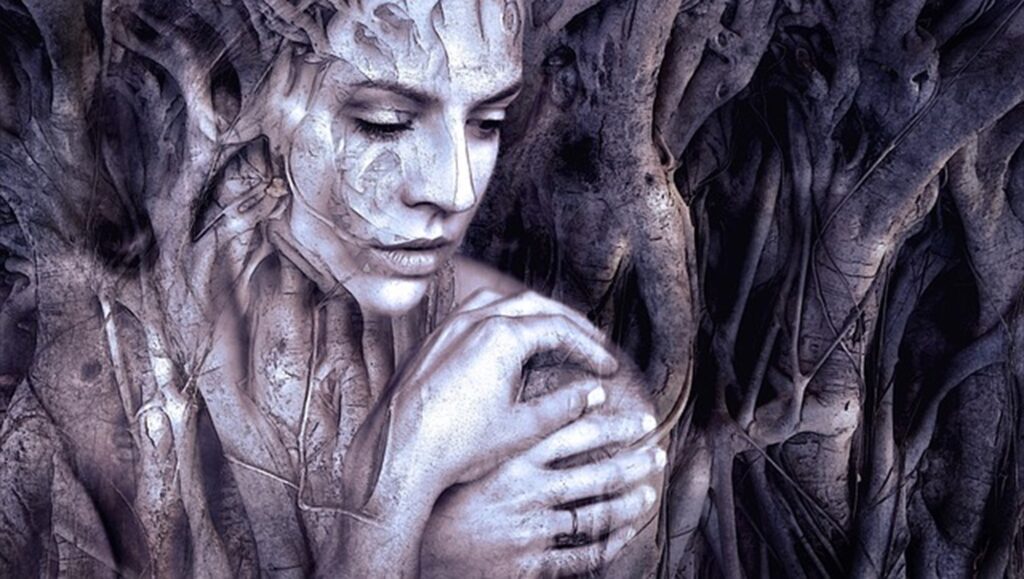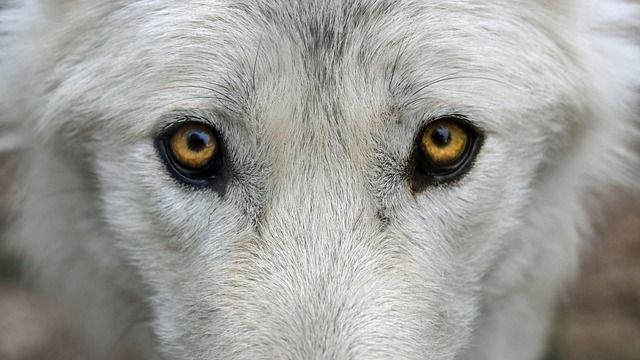
Little Red Running Hood
a short story
by
Kathryn Clark
You wake up running. There’s pain, heel to hip. But pain is good. You know you’re still alive. It washes out the mind muck. Already everything is clearer.
The nettles at the side of the path are taller than your waist. The elder flowers are already gone, gathered by the cordial makers. In their place are infant berries, green, like baby peas. This path used to be the railway track. On one side is a stream, on the other, the road beyond the trees. You are safe here, sure that if you run for long enough you will catch up to that tiny dot on your horizon. Don’t know what it is, except that it’s important.
Trees weep green life all around. You could keep going forever, flying through the forest. But in the space between songs on your headphones something makes you stop. Press pause. There – the staccato sobs of a baby beyond distress.
Look around. There’s no one. No other runner, no silent cyclist, no dog walker. You head towards the sound. There in the velvety crook of a fallen tree lies a baby, naked, on a cushion of last season’s leaves. Face screwed up like a ball of unwanted paper, he’s been crying so long there are no tears left. His legs are rigid with fury, and his hands are fists.
You call out. There must be someone here. Someone hurt perhaps, taken ill. But there’s no one, no sign of his mother, no pram, nothing.
What can you do? You kneel before him. He needs to be wrapped in something. All you have on under your top is an old sports bra. It’s sludgy pink from badly managed washing, with elastic worn to silver stretch marks. But there’s no choice. Your skin is sticky with salt as you pull off the hooded top. You wrap him in it. Pick him up. You call out again. Still no reply.
You take the next path out of the forest toward the roaring road. You pull the baby close to your chest, try to cover the jelly ring of stomach hanging over your leggings. The sunlight dazzles you. The cars are driving fast. No one notices a half naked woman with a baby standing on the pavement. So you step out into the road. A car stops. The smell of burning rubber hits your nose before the screech of tyres even ends. A man gets out. He’s wearing sunglasses. His dark hair’s a mess, like he’s just got out of bed, and there’s a shadow along his jaw. He stays on his side of the car and puts his hands on the roof.
‘Are you okay?’ he asks. Horns bleat as cars veer round him.
‘I found this baby in the wood.’
He nods as if it’s perfectly normal. No cause for alarm. ‘Is the baby hurt?’
You shake your head.
‘Are you hurt?’ he asks
‘No.’
‘Would you like to sit in the car?’
You glance through the car window and see a booster seat in the back. A family man. Safe. Your legs are feeling weak so you say yes, then: ‘Should we call the police?’
‘Get in,’ he says, ‘I’ll phone them.’
Another driver jams a hand on the horn.
‘I should get off the main road,’ he says.
Every noise makes the baby quiver. You try to pull the seat belt around you both but it gets stuck. The man helps. There are dark brown hairs on the backs of his hands.
‘He seems to have calmed down,’ the man says.
You look down at the baby, sleeping now, eye lashes curling on the pillow of his cheek.
The car turns off into a shady lane. The man inspects his phone. ‘No signal. Look, my house is just up the hill. I’ll go and try on the landline,’ he says.
You feel uneasy now, but he’s already set off again. You should have brought your mobile.
He stops the car in a parking space surrounded by trees. There’s an old stone cottage. No other house in sight.
‘Back in a minute,’ he says, and he’s out of the car.
It’s quiet except for the rustle of silver birches, like soft rain falling. Through the window of the cottage you see him rush over to an old woman. She’s holding a small child. The man takes his dark glasses off and presses the heels of his hands against his eyes. The woman comes over to the window and stares out at you.
The baby in your arms snorts so you look down. He’s awake. For the first time you see his eyes. Shocking eyes for a baby, not blue or brown, but a strange and beautiful amber. They gaze up at you. There’s a tap on the driver’s window. You look up and see the same eyes in the face of the man. He opens the door.
‘Won’t you come in?’
You’re not sure. Something doesn’t feel right, but then the baby, who has already pissed on you, starts to grunt and writhe. You know what’s coming next so you get out of the car.
‘My mother’s here, too,’ says the man.
You can’t tell if it’s reassurance or a warning.
The kitchen is warm and tidy. He passes you a nappy from a well-stocked changing bag. Just in time. His mother bustles into the room.
‘I’ll take him.’ She’s brusque, efficient.
But you hold the baby closer, unwilling to give him up. With a sigh she goes to the fridge, takes out a bottle of formula milk and puts it in the microwave.
‘You really shouldn’t heat milk for a baby in that,’ you say.
‘He’s starving. This is the quickest way,’ she says.
The man sits opposite you. The microwave beeps and the old lady fetches the bottle.
‘Will you feed him?’ she asks.
You take the milk and flick a drop onto the back of your hand. Not too hot. The baby is beside himself, twitching and making desperate noises, so you stick the bottle in his mouth, cooing at him, before you wonder how you knew to do all that. The man is wiping his strange amber eyes. The old lady is standing behind him, a piece of granite, hand on his shoulder, watching you.
‘Is this your baby?’ you ask the man.
‘Yes.’
‘Where’s his mother?’
He swallows hard. Perhaps she’s dead, you think. Perhaps he’s killed her. No, he doesn’t seem the type.
‘Lost,’ he says.
‘What do you mean?’
‘There was an accident. Just after the baby was born.’
‘What happened?’ you ask.
‘A fall. Head injuries. Some long-term effects. They may never go away. Intermittent memory loss. One minute everything’s fine. The next it’s not. I never know what I’m going to find.’
He reaches into his jacket pocket and slides a piece of paper over the table to you. He’s in the photo, younger, less crumpled, wearing a suit and a smile. Next to him, his bride, fresh and slim, happiness hovering like a halo.
Is it? Could it be? Is it you?
You have no memory of it, no memory of him. But there’s something … That dot in the distance. You stand up and pass the baby across the table to him.
‘I need to go,’ you say.
‘Where?’ he asks.
‘Back to the forest. Finish my run.’
The forest is safe. The forest has the answer.
‘Don’t go, Red,’ he whispers.
You move quickly to the front door, past the small boy sitting on the stairs. He runs to you, crushing your thighs in a man trap hug.
‘Don’t go away again, Mummy. Stay. Stay.’
Why is he calling you mummy?
He looks up at you, a smaller version of the man who brought you here. You have no memory of him either. You crouch down trying to release his grip and he frowns. That’s when you see it, the crease between his eyebrows, like on your sister’s face. It makes you pause, and he smiles. You see a flicker of your mother in there, too.
Life floods back. The wet grass beneath bare feet on your wedding day. Your husband, the man in the kitchen. He smells of outside, fresh and green, wild garlic, oaky smoke. Eyes the colour of autumn leaves. He works in the woods. A forester. You remember your sons, two of them. Their damp hay scent when they sleep. It rushes back in, all of it. Even the accident.
You are on your haunches now arms around your cub. The old woman has come out silently from the kitchen. Grandma, with her grim face, steel hair, ball bearing eyes. Her arms stretch out to your son.
‘Come here,’ she says to him.
But he won’t. He won’t go to her. He was there the day you fell. He remembers too.
The kitchen door opens and there is your husband holding the baby.
‘Paul,’ you say to him. That’s his name, Paul. ‘I remember. I remember everything.’
‘She’s crazy,’ says the old woman.
‘It wasn’t an accident,’ you say.
You remember the conversation in the hospital when he’d told you his mother had come to stay, offered to help. You didn’t like the idea, but you could see he was sinking. It had been a long hard birth after a difficult pregnancy. Then back and forth to the hospital, one complication after another. So you smiled and said it was fine. It would be good to have some help. Only she had never left. Even when you felt better, and life was back to normal, she stayed. She liked being Grandma.
That morning, Paul had already gone to work. You came down the stairs carrying the baby. On the little landing half way down, you turned when she said your name. Her closeness surprised you. She must have been creeping. She took the baby from your arms and –
You don’t tell Paul. You don’t have to. It’s your son who says it.
‘Mummy didn’t fall. Grandma pushed her.’
‘Paul! It’s not true.’ The old lady sounds shocked. She’s masterful, but a three-year-old makes a fine witness.
Paul turns from his mother and comes to you. He puts the baby in your arms, crouches down with you.
‘You’re really back?’
You smile at him and nod.
‘You’ll have to go, Mother.’ He stands, turns to face her.
But the door slams. She’s already gone.

The end
